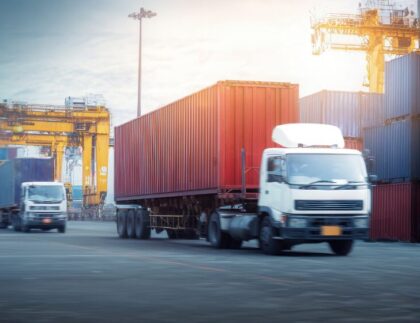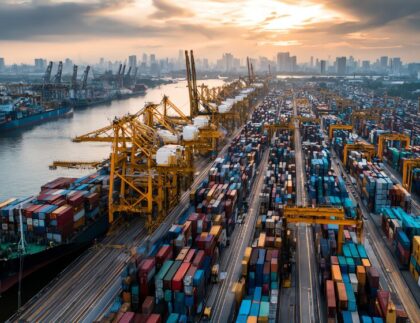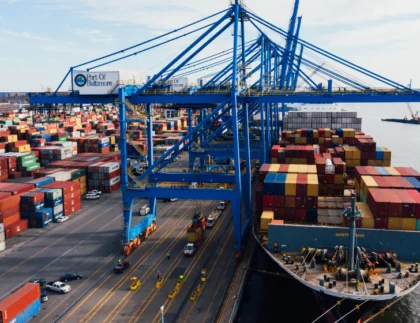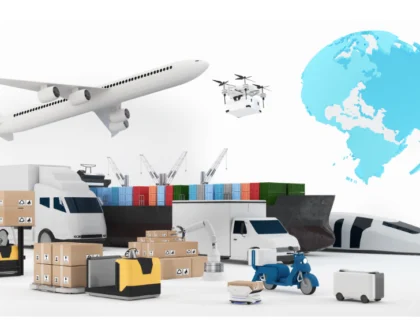
In an era where global trade is continuously evolving, freight forwarders play a critical role in ensuring the smooth movement of goods across borders. However, as international regulations grow more complex, maintaining regulatory compliance in freight forwarding has become both a challenge and a necessity.
The year 2026 is expected to bring stricter oversight, enhanced sustainability standards, and greater emphasis on data transparency. Global operators must stay proactive to mitigate risks and remain competitive in the logistics landscape.
1. Understanding Freight Forwarding Compliance
Freight forwarding compliance refers to adherence to national and international laws governing the movement of goods across borders. This includes customs regulations, trade controls, environmental laws, and data security standards. Non-compliance can lead to costly penalties, shipment delays, and reputational damage.
In 2026, regulators are expected to intensify scrutiny as global supply chains continue to digitize and environmental accountability takes center stage.
2. The Changing Landscape of Global Trade Regulations
The backbone of international shipping lies in global trade regulations which is a dynamic framework influenced by political shifts, technological progress, and environmental goals.
World Trade Organization (WTO), International Maritime Organization (IMO), and regional trade blocs like the European Union and ASEAN.
New trade agreements and sanctions regimes will likely affect import-export procedures. For example, evolving export control regulations on sensitive goods such as dual-use technologies and critical minerals will demand more careful documentation and verification processes. Freight forwarders must maintain up-to-date knowledge of these rules to avoid unintentional violations.
3. Customs Documentation and Digitalization
Accurate customs documentation remains the foundation of compliant freight operations. Mistakes in commercial invoices, packing lists, or certificates of origin can trigger customs audits or shipment holds. As 2026 approaches, digital transformation in customs processing—such as blockchain-based documentation and AI-driven customs declarations is becoming mainstream.
Operators should invest in digital platforms that automate compliance checks and streamline data sharing with customs authorities. These technologies not only enhance efficiency but also reduce the likelihood of human error and documentation discrepancies.

4. Supply Chain Security and Risk Management
With global supply chains becoming more interconnected, supply chain security is a top priority. Freight forwarders must adhere to international security standards like the Customs-Trade Partnership Against Terrorism (C-TPAT) and the Authorized Economic Operator (AEO) programs.
Implementing logistics risk management strategies—such as supplier verification, cargo tracking, and cybersecurity measures—can significantly reduce vulnerability to fraud, theft, or data breaches. In 2026, companies that integrate risk management into their operational culture will gain a competitive advantage by offering safer and more reliable logistics services.
5. Export Control Regulations and Sanctions Compliance
One of the most complex aspects of freight forwarding compliance lies in export control regulations. Governments worldwide are tightening restrictions on the export of strategic goods, software, and technologies. Forwarders must ensure that shipments comply with export licensing requirements and that none of their clients or cargo are associated with sanctioned entities.
Automated screening tools can help operators check against global denied-party lists and embargoed destinations. Maintaining thorough documentation of due diligence efforts will be essential to demonstrate compliance during audits or investigations.
6. Environmental Compliance in Logistics
Sustainability is now a central component of regulatory compliance. The logistics industry is under pressure to reduce its carbon footprint and comply with environmental laws. Environmental compliance in logistics for 2026 will revolve around emission reporting, green fuel usage, and waste reduction.
The IMO’s carbon intensity regulations, the EU’s Emission Trading System (ETS), and national green transport policies will affect freight forwarders directly. Operators should explore eco-friendly transportation options, such as biofuels or electric delivery fleets, and implement carbon tracking systems. Transparency in sustainability reporting will not only ensure compliance but also enhance brand reputation among environmentally conscious clients.

7. Data Transparency and Reporting
As digital trade becomes the norm, regulators are demanding greater data transparency and reporting. Freight forwarders handle vast amounts of sensitive information—shipment details, customer data, and financial transactions—that must be securely stored and accurately reported.
Compliance with global data protection frameworks such as the EU’s GDPR and emerging digital trade regulations will be non-negotiable. In 2026, real-time data sharing across supply chain partners and authorities will become a regulatory expectation rather than an option. Forwarders should invest in robust data management systems and adopt transparent reporting practices to strengthen trust and accountability.
8. Building a Trade Compliance Checklist for 2026
To stay compliant and future-ready, global operators should develop a Trade Compliance Checklist for 2026.
1. Regulatory Awareness:
- Maintain updated records of trade agreements, export controls, and customs laws.
- Regularly train staff on new compliance requirements.
2. Documentation Accuracy:
- Digitize customs documents and automate validation processes.
- Use AI tools for classification and valuation checks.
3. Security Protocols:
- Implement end-to-end tracking and cargo screening systems.
- Participate in recognized supply chain security programs.
4. Environmental Responsibility:
- Measure and report carbon emissions from logistics operations.
- Adopt sustainable shipping and warehousing practices.
5. Risk and Data Management:
- Conduct due diligence on partners and suppliers.
- Protect sensitive trade data with advanced cybersecurity tools.
6. Audit and Reporting:
- Schedule regular internal compliance audits.
- Maintain transparent communication with regulators and clients.
9. The Human Factor in Compliance
Building a culture of compliance, where every employee understands the importance of ethical trade and accurate reporting—will be a defining feature of successful freight forwarders in 2026.

10. Conclusion
Regulatory compliance in freight forwarding is no longer just about avoiding fines, it is about building trust, resilience, and sustainability in global trade. As we move toward 2026, the convergence of global trade regulations, environmental compliance, and digital transparency will reshape how freight forwarders operate.
Those who adopt a proactive, technology-driven, and ethically grounded approach to compliance will not only meet regulatory expectations but also position themselves as leaders in the new era of global logistics.











